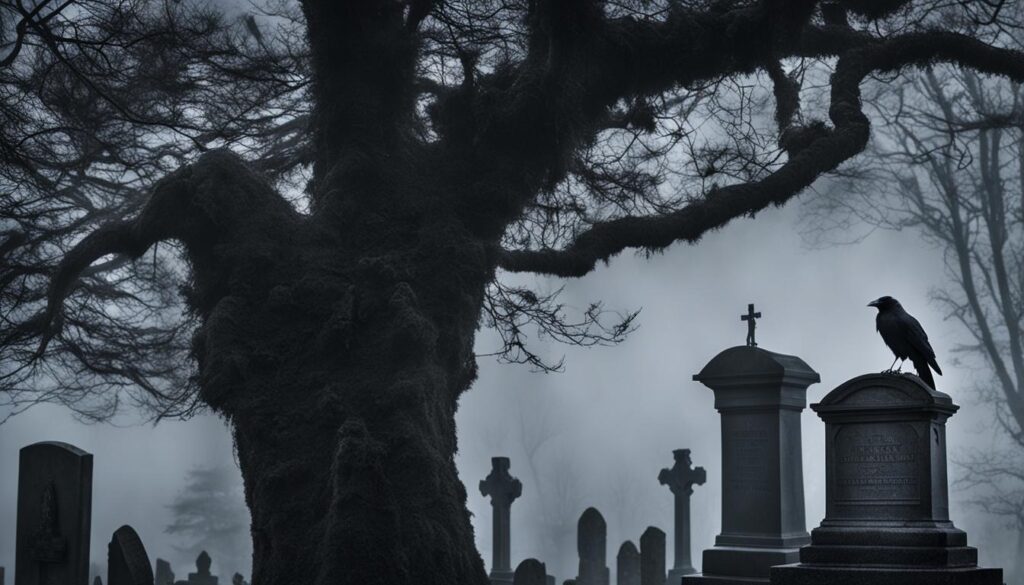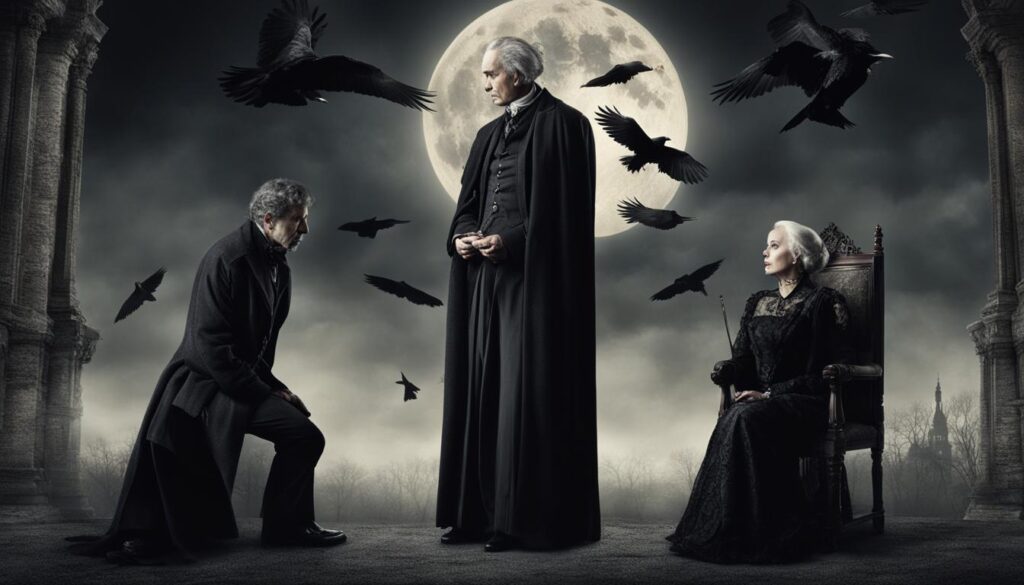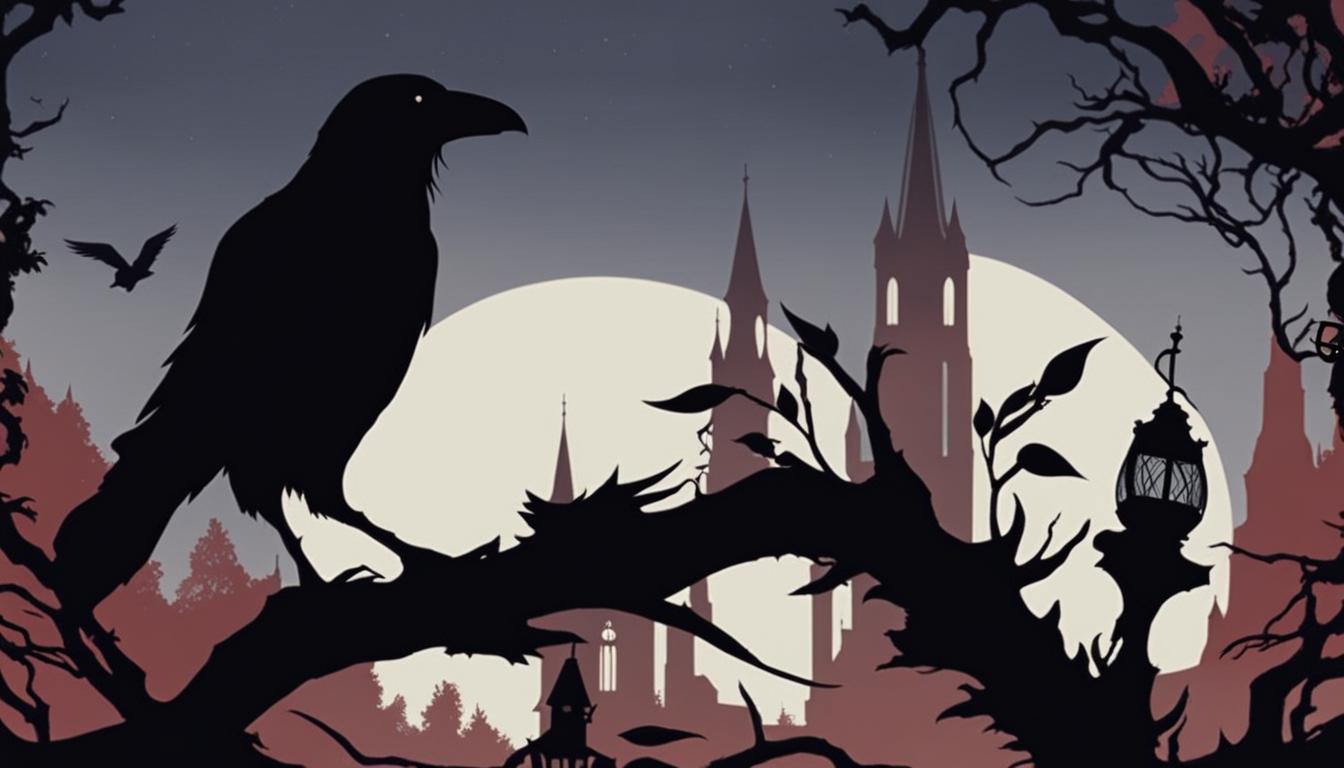When it comes to horror and suspense, few names are as synonymous with the genre as Stephen King and Edgar Allan Poe. Both writers have left an indelible mark on the literary world, inspiring countless imitators and adaptations. In this article, we will delve into the lives and works of these two literary titans and compare their writing styles, themes and legacies. Join us on a journey through the macabre and mysterious as we pit Stephen King vs Edgar Allan Poe in a battle of the books.
The Life and Background of Stephen King
Stephen King was born in 1947 in Portland, Maine. He spent most of his childhood in Durham, Maine, where his father left the family to pursue a career in business. As a child, King displayed an early interest in storytelling, enjoying (and creating) horror tales with his friends. His mother, a caregiver at a local residential facility, also influenced his love for the macabre; she would often recount the stories of the patients she cared for, which deeply affected the young Stephen.
King went on to attend the University of Maine, where he studied English and earned his B.A. in 1970. During his time in college, he wrote for the school newspaper and started to gain recognition for his writing abilities. After graduation, King held a number of odd jobs, including working in a commercial laundry and as an English teacher at Hampden Academy, a public school in Maine.
It wasn’t until 1973, with the publication of his first novel, “Carrie,” that King gained widespread acclaim for his writing. The success of “Carrie” launched his career as a horror writer and earned him critical praise for his ability to tap into the fears and anxieties of the modern world.
Throughout his career, King has published numerous bestsellers, including “The Shining,” “Misery,” and “It,” each of which has left an indelible mark on the horror genre. His unique ability to blend supernatural elements with real-world situations and characters has made him one of the most beloved and successful writers of his generation.
The Works and Themes of Stephen King
Stephen King’s books have captivated readers for decades, selling millions of copies and inspiring numerous adaptations for film and television. Some of his most famous works include “The Shining,” “It,” and “Carrie.” These tales of horror and the supernatural have earned King a reputation as a master of the genre.
One of the common themes present in King’s writing is the exploration of the human psyche. Many of his characters are haunted by their own inner demons, struggling to come to terms with their fears and weaknesses. In “The Shining,” the main character grapples with addiction and anger issues, while “It” delves into the trauma of childhood and the lasting effects of abuse.
Another hallmark of King’s writing is the vivid portrayal of the supernatural. From ghosts and demons to psychic abilities and time travel, his stories often feature otherworldly elements that blur the line between reality and fantasy. The supernatural elements are often used to explore deeper themes and issues, such as grief and loss in “Pet Sematary.”
Overall, Stephen King’s writing style is marked by a deep understanding of human nature and an ability to weave together complex storylines with engaging characters. His work continues to inspire and terrify readers around the world.
The Legacy of Stephen King
The impact of Stephen King on modern literature and popular culture is undeniable. Since the publication of his first novel, “Carrie,” in 1974, King has become one of the most prolific and successful writers of our time, with over 350 million copies of his books sold worldwide. His influence on other writers in the horror and suspense genres is immeasurable, with his unique blend of psychological thrills and supernatural elements captivating readers for decades.
King’s stories have also been adapted into numerous successful films and television series, including “The Shining,” “It,” and “The Stand,” cementing his legacy as one of the most popular and respected writers of our time. The impact of his work goes beyond entertainment, as his themes and social commentary have stimulated further discussion and contemplation on a variety of contemporary issues.
Stephen King’s Influence on Other Writers
King’s legacy can be seen in the works of many contemporary writers, such as Gillian Flynn, Joe Hill, and Neil Gaiman, who have all cited King as a major source of inspiration. His impact on the horror genre is undeniable, with themes and motifs from his works often appearing in the works of other horror writers.
The Global Reach of Stephen King’s Work
King’s books have been translated into over 40 languages and have had a massive impact on global popular culture. From films and television shows to video games and merchandise, King’s influence is felt across a variety of mediums.
The Enduring Popularity of Stephen King’s Work
Even after more than four decades of writing, King’s work remains incredibly popular, with new readers discovering his books every day. His stories resonate with readers of all ages and backgrounds, as his themes and characters are universally relatable.
| Key Points | Details |
|---|---|
| Stephen King is one of the most successful and popular writers of our time. | With over 350 million copies of his books sold worldwide, King’s influence on literature and popular culture is immeasurable. |
| His impact is felt across a variety of mediums and genres. | From films and television shows to merchandise and video games, King’s stories have been adapted and reimagined in a variety of ways. |
| King’s legacy is seen in his enduring popularity and cultural impact. | New readers continue to discover his books, and his themes and characters remain relevant and relatable to audiences around the world. |
The Life and Background of Edgar Allan Poe
Edgar Allan Poe was born in Boston, Massachusetts, in 1809. The son of actors Elizabeth Arnold Hopkins Poe and David Poe Jr., he experienced a troubled childhood following the early death of his parents. Poe was then taken in by John Allan, a wealthy merchant from Richmond who gave him his middle name, but they would later have a tumultuous relationship. Despite setbacks, Poe’s love for literature flourished, and he published his first collection of poetry, “Tamerlane and Other Poems,” at the age of 18.
Poe’s literary struggles continued throughout his life, marked by a string of unsuccessful jobs, a tumultuous marriage, and a reputation for drinking. However, his work began to gain popularity among readers and critics, and he is now considered one of America’s most significant literary figures.
Poe’s fascination with macabre and gothic themes can be traced back to his early readings of authors such as Horace Walpole and William Shakespeare. He explored the depths of human emotion and the human psyche in his writing, often delving into themes of madness, death, and the supernatural.
Unfortunately, Poe’s death in 1849 still remains one of literature’s most mysterious and controversial events. He was found delirious on the streets of Baltimore and taken to a hospital, where he died four days later. Despite numerous theories and speculations, the cause of his death remains unknown.
The Works and Themes of Edgar Allan Poe
Edgar Allan Poe is renowned for his exceptional storytelling abilities, and some of his most famous works include “The Raven” and “The Tell-Tale Heart.” In these stories, Poe explores the depths of the human psyche with recurring themes of madness, death, and the macabre.
One of his most notable works, “The Raven,” tells the tale of a man haunted by a raven and driven to the brink of madness. The poem captures the eerie atmosphere often found in Poe’s writing through its use of rich imagery and dark symbolism. Similarly, “The Tell-Tale Heart” explores the theme of guilt and the breakdown of the human mind, featuring a protagonist who hears the heartbeat of the person he has murdered and is eventually driven to confess.
Throughout his writing, Poe examines human morality, explores the boundaries of sanity, and delves into the effects of isolation and obsession. His unique blend of horror and psychological depth has made his stories enduring classics and a significant influence on the horror genre.
The Legacy of Edgar Allan Poe
The writing of Edgar Allan Poe has had a profound and lasting impact on the horror genre and literature as a whole. Despite being written over a century ago, his stories continue to captivate and terrify readers.
Poe’s influence is evident in the works of future generations of writers, from H.P. Lovecraft to Stephen King. His mastery of suspense, psychological horror, and macabre imagery have become hallmarks of the horror genre.
Furthermore, Poe’s contributions to detective fiction have been groundbreaking. Through his creation of the genre, he paved the way for many iconic characters, such as Sherlock Holmes and Hercule Poirot.

Poe’s Influence on Horror
Poe’s impact on the horror genre is immeasurable. He is widely considered to be the father of the modern horror story, and his influence can be seen in the works of directors, writers, and artists across the globe. His themes of madness, death, and the human psyche, combined with his vivid descriptions of the macabre and supernatural, continue to inspire contemporary authors to this day.
Poe’s Contributions to Detective Fiction
Poe’s contributions to detective fiction are equally profound. Through his creation of the genre, he established a new and exciting form of storytelling that has captivated readers for generations. His stories featuring C. Auguste Dupin are considered some of the earliest examples of detective fiction. They paved the way for other iconic characters, such as Sherlock Holmes and Hercule Poirot, and continue to influence and inspire writers in the genre today.
Comparing Writing Styles and Techniques
Stephen King and Edgar Allan Poe are both masters of the horror genre, but their writing styles and techniques differ in several ways.
Whereas Poe’s writing is often characterized by its dark and gothic imagery and themes of madness and death, King’s works often center around psychological and supernatural elements. King is also known for his use of suspense and slow-building tension to draw readers in and keep them hooked, while Poe’s stories often begin with a sense of eerie foreboding that builds to a climactic and often gruesome ending.
Both authors use vivid and descriptive language to create a rich and immersive reading experience. Poe’s writing is known for its use of alliteration and internal rhyme, which add to the musicality and rhythm of his prose. King, on the other hand, is known for his ability to create fully-realized and complex characters, whose motivations and inner lives are as important as the external events of the plot.
Ultimately, the writing styles of Stephen King and Edgar Allan Poe offer unique and compelling perspectives on the horror genre, and continue to captivate readers decades after their works were first published.
Literary Analysis: Similarities and Differences
Comparing the works of Stephen King and Edgar Allan Poe reveals several significant similarities and differences. Both authors employ various literary techniques to create suspense, evoke fear, and explore the darker aspects of the human psyche. However, their writing styles and thematic explorations differ in many ways.
Common Themes
One of the most striking similarities in the works of Poe and King is their fascination with death, obsession, and madness. Both authors use these themes to delve into the innermost thoughts and fears of their characters, often blurring the lines between reality and fantasy. In “The Tell-Tale Heart,” for instance, Poe explores the psychological effects of guilt and paranoia, while King’s “Misery” portrays the destructive power of obsession and eerie fan culture.
Another shared theme is the supernatural or paranormal. Both Poe and King employ supernatural elements to heighten the suspense and horror in their stories, albeit in different ways. Poe’s works often revolve around ghosts, spirits, and other entities from beyond the grave, while King’s supernatural elements range from demonic clowns to telekinetic powers.
Divergent Narrative Structures
One notable difference between Poe and King is their use of narrative structure. Poe is well known for his tight, compact stories, such as “The Masque of the Red Death,” that build up to a cataclysmic ending. King, on the other hand, often uses a sprawling, multi-layered narrative structure that incorporates numerous subplots and characters, as seen in “The Stand.”
Distinct Stylistic Choices
Poe’s writing style is characterized by his use of elaborate and precise language, as well as his vivid imagery that immerses readers in a dark and eerie atmosphere. King, on the other hand, is known for his colloquial language and relatable characters, often weaving in pop culture and modern references to ground his stories in a more realistic setting.
Cultural and Societal Impact
The works of Stephen King and Edgar Allan Poe have undoubtedly left a lasting impression on popular culture and society. Through their innovative storytelling and evocative themes, they have both made indelible marks on the literary world.
King’s novels and short stories have been adapted into numerous films and television series, such as “Carrie,” “The Shawshank Redemption,” and “The Stand,” demonstrating his widespread influence on the entertainment industry. His ability to create gripping narratives, multidimensional characters and explore complex social issues through the lens of horror has inspired a generation of writers and filmmakers.

Similarly, Poe’s works have had a profound impact on literature, and his explorations of the darker aspects of human nature have made him a seminal figure in the horror and suspense genres. His influence can be seen in the works of H.P. Lovecraft, Arthur Conan Doyle, and Alfred Hitchcock, among others, and his legacy continues to inspire modern-day horror writers, such as Neil Gaiman and Clive Barker.
Both King and Poe have also explored themes that relate to social commentary, such as addiction, mental illness, and the human condition. By addressing these topics through the medium of horror, they have opened up new avenues of discussion and understanding in society.
Comparison Table: Cultural and Societal Impact
| Stephen King | Edgar Allan Poe |
|---|---|
| His expansive body of work has been adapated numerous times into successful films and TV shows, cementing his legacy in popular culture. | His innovative approach to suspense and horror inspired generations of writers and filmmakers, influencing the horror genre for decades. |
| Through exploring complex social issues via the horror genre, King has used his platform to address topics such as addiction, mental health, and the human experience. | Poe’s exploration of the darker aspects of the human psyche has influenced great authors such as H.P. Lovecraft and Arthur Conan Doyle, and inspired future filmmakers such as Alfred Hitchcock. |
| His legacy continues to encourage modern-day horror writers to test the boundaries of the genre. | Poe’s influence has persisted throughout the centuries and seen him become a seminal figure in the horror and suspense genres. |
Criticism and Reception of their Works
Stephen King and Edgar Allan Poe are both literary giants whose works have left a lasting impact on the horror genre and literature as a whole. As with any authors, their respective works have been met with both positive and negative criticism, but their legacies continue to thrive.
King’s writing has been praised for its accessibility and relatability, with many critics commending his ability to create compelling characters and vivid worlds. However, some have criticized his tendency towards drawn-out plotlines and reliance on shock value.
Poe’s writing, on the other hand, has been praised for its poetic language and dark, introspective themes. However, some have accused him of being formulaic in his writing and overly fixated on gruesome details.
Despite these criticisms, it is undeniable that both authors have had a significant impact on literature and popular culture. King’s works continue to be adapted into successful films and television shows, while Poe’s influence can be seen in the detective fiction genre and beyond.
Conclusion
Stephen King and Edgar Allan Poe are two of the most iconic names in the world of literature, having left an indelible mark on the horror genre with their works. Despite the differences in their backgrounds and writing styles, both authors share a common thread of exploring the darker aspects of human nature and delving into psychological and supernatural themes.
Their works have had a profound impact on popular culture and society, influencing subsequent generations of writers and inspiring countless films, television series, and adaptations. While there may be ongoing debates about their legacies and literary merits, there is no denying the enduring and timeless nature of their creations.
As we continue to explore the works of Stephen King and Edgar Allan Poe, we gain a deeper understanding of the human condition and the forces that drive our darkest thoughts and desires. Their contributions to the literary world will continue to be celebrated and admired for years to come.



